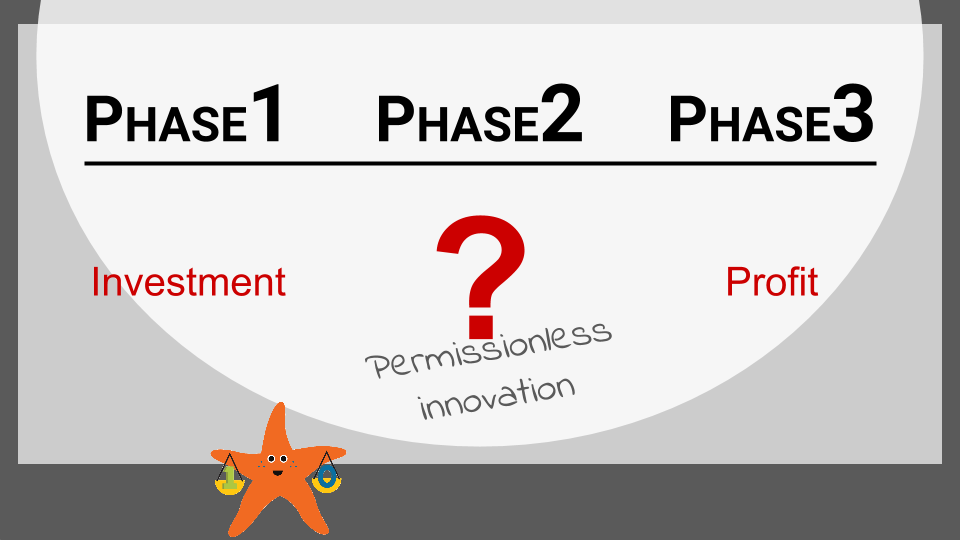Last month we had the pleasure of reading The Sharing Economy and subsequently meeting the author, Arun Sundararajan, with whom we shared our praise, at the New Cities Summit. The book, which we’ve added to our bibliography, eloquently ties together many of our pioneering thoughts on innovation and economics, which we’ll discuss here, starting with the economics which Sundararajan frames as follows:
The sharing economy, although not politically neutral, is creating a new economic model – an interesting middle ground between capitalism and socialism – that also appears to lend itself to fulfilling the desires and needs of people who identify with the extreme ends of both the economic and political spectrums. More importantly, it has developed an economic model that appears to lend itself to fulfilling the desires and needs of people who identify with neither of those extremes.
Conceptually, it seem paradoxical that a new economic model can benefit both those closest to and furthest from the extremes of traditional models. But, as we highlight in our blog post on the Pervasive Sharing Economy, scepticism wanes as even companies that have been notoriously slow to adapt are defying expectations:
General Motors, a company that long ago conspired to derail public transit to boost private vehicle ownership, just bet $500M on Lyft anticipating the end of said ownership!
In that post we argue that while the current sharing economy is largely limited to higher-value underutilised assets such as vehicles and real-estate, the proliferation of Internet of Things technologies will extend the marketplace to include the majority of everyday things from clothing to tools and beyond. However, unlocking this enormous potential is predicated on a significant investment in technology and infrastructure, a proposition which is today typically met with resistance. But such attitudes are clearly evolving, as evidenced by the book’s citation of a post by Brad Burnham of Union Square Ventures discussing their investment in OB1 which develops the enabling technologies for OpenBazaar, “a free market for all with no fees or restrictions”:
How can a business that is consciously architected to undo network effect defensibility, one that is tearing down the walls and filling in the moats that every paper on market based competition has insisted are necessary for success … succeed?
OB1 will offer a set of value added services to buyers and sellers […] and they don’t expect to have any proprietary advantage over those competitors. As investors, we hope that their familiarity with the marketplace and the goodwill they generate as early sponsors of the open source project will give them an advantage but we understand they must execute very well or be left behind. (link)
While it is both refreshing and motivating, as startup entrepreneurs, to witness this shift in attitudes towards investment, we must point out that it is not access to capital alone which is gating progress. Policies and protocols play an equally important role as Sundararajan’s quote of Albert Wenger, also of Union Square Ventures, this time discussing Bitcoin, highlights:
Policy makers, however, need to understand the importance of protocols for enabling distributed permission-less innovation – that is innovation by many individuals and startups. For instance, the hypertext transport protocol (http) is what lets a browser talk to a web server – as long as the server implements the protocol it can deliver innovative content or services to any browser. HTTP itself builds on many other lower level protocols, such as DNA and TCP/IP. Historically, protocols have emerged from either research projects or from individuals / small groups simply throwing something out that sticks. (link)
Case in point, Vint Cerf, co-inventor of TCP/IP, and currently VP & Chief Internet Evangelist for Google, who we recently had the pleasure of meeting at an IEEE science conference. As we argue in Vint Cerf and the Good Fight for the IoT: “in our opinion, he is one of the few individuals applying a long-term vision to balance what’s optimal and what’s profitable for the still nascent Internet of Things”. Cerf equally argues for permissionless innovation. Without the Internet-enabling TCP/IP protocol he co-invented as a researcher, Google’s highly profitable business could not exist! At reelyActive, we thus stand by our approach of publishing protocols as science, upon which we build our innovative business, driven to execute very well or be left behind!
In the coming weeks reelyActive will celebrate its fourth anniversary. One might say that we’ll celebrate having survived four years (see threelyActive), as indeed our hybrid approach hasn’t made life easy under the existing paradigm. Nonetheless, the recent developments discussed in this post and in the book are enormously encouraging. So, what is the next economic paradigm? On that topic, Sundararajan argues the following, paraphrasing Douglass North:
[H]istory suggests that it is neither possible nor economically viable to simply adopt existing rules and apply them to a new economy. The challenge, then, is to determine what comes next.
What comes next is a value-first approach. Investment in the projects and startups developing enabling technologies, including the underlying open protocols, will unlock massive value, generated through permissionless innovation by their peers; value that will lend itself to fulfilling the desires and needs of people across the political-economic spectrum. Investment in massive value creation is Phase 1. Embracing this approach, investors, be they private, institutional or government, need only find a clever means to collect their fair share of the resultant massive value in order to profit more handsomely than could ever be afforded by the current economic paradigm.
